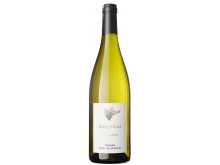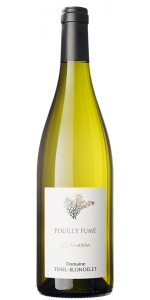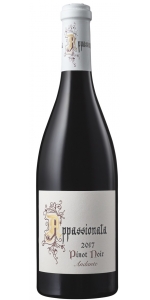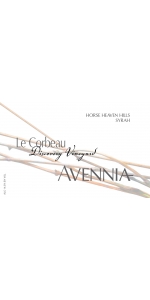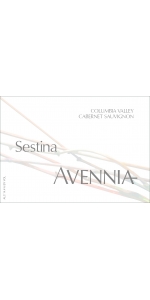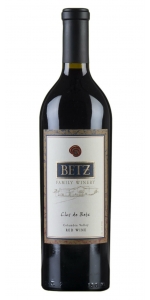Tinel Blondelet Pouilly-Fume Genetin 2017
| Country: | France |
| Region: | Loire |
| Winery: | Tinel-Blondelet |
| Grape Type: | Sauvignon Blanc |
| Vintage: | 2017 |
| Bottle Size: | 750 ml |
Tinel Blondelet Pouilly-Fume Genetin is made from 100 percent Sauvignon Blanc.
The soil is made of "caillottes" (limestone stones).
"Genetin" is a name given in homage to the original name for Sauvignon Blanc: Muscat Genetin. The Genetin bottling is normally reserved for the most powerful Cuvées in the winery. No oak.
Produced from 25 year-old vines coming from the Villiers limestone terroir, situated in Bouchot.
Traditional vinification in thermo-regulated stainless steel tanks. Following a gentle pressing the juice is then fermented at controlled temperatures before being left to mature on its fine lees to gain extra depth and concentration before bottling in the next spring.
Matured on fine lees bringing finesse to the wine and bottled late in order to let all its roundness evolve.
Yield: 55 hl/ha
A golden colored and mineral wine with elegance and finesse. Can be cellared for 2-3 years.
A mineral-laced smoky accent and citrus aromas. Elegant and powerful on the palate.
Food pairing: shellfish, goat cheese such as “Crottin de Chavignol”. Perfect also as an aperitif.
Review:
- Wine & Spirits (Regional Tasting Report, Spring 2022), 91 pts
Tinel Blondelet Pouilly-Fume Genetin is made from 100 percent Sauvignon Blanc.
The soil is made of "caillottes" (limestone stones).
"Genetin" is a name given in homage to the original name for Sauvignon Blanc: Muscat Genetin. The Genetin bottling is normally reserved for the most powerful Cuvées in the winery. No oak.
Produced from 25 year-old vines coming from the Villiers limestone terroir, situated in Bouchot.
Traditional vinification in thermo-regulated stainless steel tanks. Following a gentle pressing the juice is then fermented at controlled temperatures before being left to mature on its fine lees to gain extra depth and concentration before bottling in the next spring.
Matured on fine lees bringing finesse to the wine and bottled late in order to let all its roundness evolve.
Yield: 55 hl/ha
A golden colored and mineral wine with elegance and finesse. Can be cellared for 2-3 years.
A mineral-laced smoky accent and citrus aromas. Elegant and powerful on the palate.
Food pairing: shellfish, goat cheese such as “Crottin de Chavignol”. Perfect also as an aperitif.
Appasionata Andante Pinot Noir Willamette Valley is made from 100 percent Pinot Noir.
Named after the French word for Crow, or Raven, this Syrah is certainly as dark as the name implies. Hailing from Discovery Vineyard, perched high above the Columbia River in the heart of the Horse Heaven Hills, these grapes were grown in a very unique terroir. Avennia's approach of old-world style, minimalist winemaking allows for full expression of the fruit, showcasing the elegant and savory side of Syrah.
"Leads with a nice balance of dark fruits—blackberry and blueberry—with more savory elements, including blackberry leaf, olive, charcuterie, and a hint of shiitake. The palate features snappy fresh black fruits, a hint of smoked meat, and a lively finish with plenty of savory elements that make this wine quite interesting. Give it a year in the cellar and enjoy over the next eight years or so." - Chris Peterson, Winemaker
Reviews:
"Aromas of blackberry and violet accented by a note of stems. Sweet, supple wine with dark fruit flavors lifted by a black-peppery topnote and accented by cinnamony Red Hots. For all its high notes, this is essentially a creamy wine with no edges. I suspect it will tighten up in bottle and eventually display a more savory aspect. Incidentally, this will be the last vintage for this bottling because, beginning with vintage 2018, Chris Peterson will introduce some new single-vineyard Syrahs from the exciting new WeatherEye vineyard on top of Red Mountain. This steep site, owned by Cameron Myhrvold and farmed by Ryan Johnson, extends over the ridgeline and onto the northern flank of Red Mountain. The project is called Red Mountain Elevated, and Peterson is making the wines. (14.5% alcohol; done mostly in puncheons; vinified with 10% stems) - Stephen Tanzer”
- Antonio Galloni's Vinous (December 2019), 92 pts
"The last vintage for this cuvée, the 2017 Syrah Le Corbeau Discovery Vineyard is similar in style to the Arnaut yet offers slightly more floral notes in its blue fruits, wild strawberry, violets, rose petal, and sappy, forest floor aromas and flavors. Medium-bodied, with bright acidity and good balance, it’s a beautiful Syrah that leans heavily toward the fresh, elegant end of the spectrum while still offering tons of character and pleasure.”
- Jeb Dunnuck (April 2019), 92-94 pts
Each magnum is signed by the winemaker!
Avennia Sestina Cabernet Sauvignon is made from 77% Cabernet Sauvignon, 17% Merlot, 6% Cabernet Franc.
The story of this wine - The Sestina is an ancient form of poetry from Medieval France. Just as a modern poet can fill this form with new expressions, Avennia uses the traditional Bordeaux blend to express Washington. Sestina is their vision for an old vine, complex blend where all of the components complement each other. This wine is designed for the cellar, so the emphasis is on structure, balance, and complexity.
Winemaker Tasting Notes - “Good deep ruby/garnet color, with aromas of black cherry, fresh black currant, dark mocha, cigar box, and graphite. The palate is lively and dense with mountain berries, mocha, vanilla honey, damp earth, and wildflowers. The finish shows a distinct chalky minerality and beautiful tension. This is a classically balanced and ageworthy Sestina. Drink 2025-2040.” - Chris Peterson, Winemaker
Review:
"The Cabernet Sauvignon-dominated release from Peterson, the 2017 Sestina comes from the Red Willow, Bacchus, and Dionysus vineyards. Rocking levels of crème de cassis, sappy herbs, violets, and cedar pencil all flow to a full-bodied, incredibly pure, polished 2017 that offers flawless balance, ripe tannins, and a great, great finish. It's more approachable than normal yet is still going to evolve for 15 to 20 years. The blend is 77% Cabernet Sauvignon, 17% Merlot, and the rest Cabernet Franc, all raised 20 months in 50% new French oak."
- Jeb Dunnuck (April 2020), 95 pts
Betz Family Clos de Betz is 67 % Merlot, 27% Cabernet Sauvignon, 6% Petit Verdot
Review:
Full, dark ruby-red. Black fruit and licorice aromas are complicated by a mineral element. Wonderfully sappy, concentrated and ripe, with well-delineated Merlot-dominated flavors of black fruits, licorice and bitter chocolate conveying sexy sweetness. Finishes with plush tannins and excellent length. A superb vintage for this wine, clearly more concentrated and ripe than the 2016. Winemaker Skinner told me that the Petit Verdot element from Olsen vineyard is somewhat Pinot-like and actually softens this wine's tannins. And he noted that the cool late-season temperatures in 2017 allowed for easy picking. (aged until June of '18 in 60% new oak before being moved to neutral barrels for nearly another year of aging)
- Stephen Tanzer 93 Points
A blend of Merlot, Cabernet Sauvignon and Petit Verdot, the 2017 Clos de Betz has a vibrant expression on the nose, with plush, generous fruit aromas and an underlying brooding tightness. Full-bodied on the palate, the fleshy, plump fruit tones deliver a velvety lushness over the mid-palate, then the wine becomes more dusty and rigid on the finish, ending with oak spices that linger. I will revisit this swine in 36 months, as I suspect it will show better at a later date. This will easily last a decade and more. 750 cases produced.
-Wine Advocate 94 Points
Tinel Blondelet Pouilly-Fume Genetin is made from 100 percent Sauvignon Blanc.
The soil is made of "caillottes" (limestone stones).
"Genetin" is a name given in homage to the original name for Sauvignon Blanc: Muscat Genetin. The Genetin bottling is normally reserved for the most powerful Cuvées in the winery. No oak.
Produced from 25 year-old vines coming from the Villiers limestone terroir, situated in Bouchot.
Traditional vinification in thermo-regulated stainless steel tanks. Following a gentle pressing the juice is then fermented at controlled temperatures before being left to mature on its fine lees to gain extra depth and concentration before bottling in the next spring.
Matured on fine lees bringing finesse to the wine and bottled late in order to let all its roundness evolve.
Yield: 55 hl/ha
A golden colored and mineral wine with elegance and finesse. Can be cellared for 2-3 years.
A mineral-laced smoky accent and citrus aromas. Elegant and powerful on the palate.
Food pairing: shellfish, goat cheese such as “Crottin de Chavignol”. Perfect also as an aperitif.
Review:
"This 37-acre estate managed by Annick Tinel-Blondelet has produced a juicy wine with open white fruits and good acidity. Called after the original name for the Sauvignon Blanc grape, it has great fruitiness, a taut texture and is ready to drink. - Roger Voss"
- Wine Enthusiast (December 2018), 90 pts
The Tinel-Blondelet Estate
Annick Tinel represents the 6th generation of winemakers. She took over the estate from her parents in1985 . The total production averages 8,000 cases per year and she exports 60%.
The Tinel-Blondelet Vineyard
This 15 hectares (37 acres) vineyard is divided into 3 parcels in Sancerre and 16 parcels in Pouilly:
- 9.5 hectares: Pouilly-Fumé, on limestone soils and kimmeridgian marls (oyster shells fossils)
- 0.5 hectares: Pouilly-sur-Loire
- 4 hectares:Sancerre, "Les Blancs Gateaux", on limestone and silicious soils.
Annick Tinel focuses on the quality of the vineyard to obtain the optimum maturity of the grapes. She combines the use of modern techniques (pneumatic press, thermo-regulator, etc) with traditional vinfication methods to give richness and aromatic complexity to the wines.
- back
Certified organic, ungrafted vines over 130 years old; a "grand cru" site of Paso Robles. Transcendent. Lovely sweet red fruits, loads of spice and pepper, violets, chalk, even a hint of pineapple grass on the nose. White stones and wild strawberries in a lovely pas de deux on the palate, with vibrant energy and finesse. What a knockout.
Review:
Broad-shouldered and powerfully structured yet detailed and stylish, with deep flavors of blackberry and cherry accented by bittersweet chocolate, orange peel and fruitcake spices that gather tension and richness on the slightly firm finish.
-Wine Spectator 95 Points
Collier Creek Crafty Fox Merlot is made from 93% Merlot and 7% Teroldego.
Nestled in the heart of the Lodi Appellation, where farmland ran as far as the eye could see, Collier Creek is a place that reminds us of simpler times. Make like a Crafty Fox and fill your den with Merlot that digs into notes of dark fruit and vanilla with a velvet mouthfeel and dry finish.
RS: 3 g/L
TA: 5.5 g/L
Pair with grilled tri-tip, veal scallopini, burger w/ gorgonzola & caramelized onions, classic baked lasagna.

